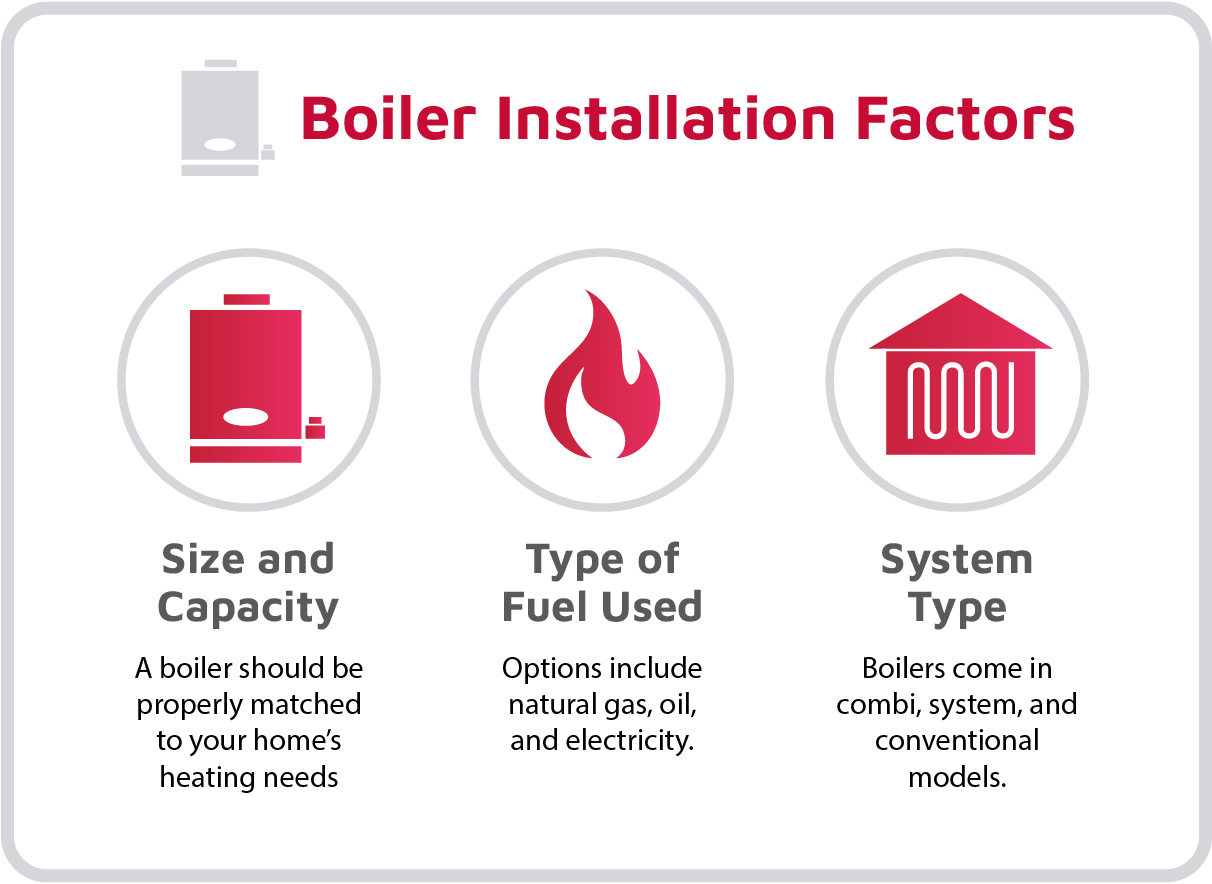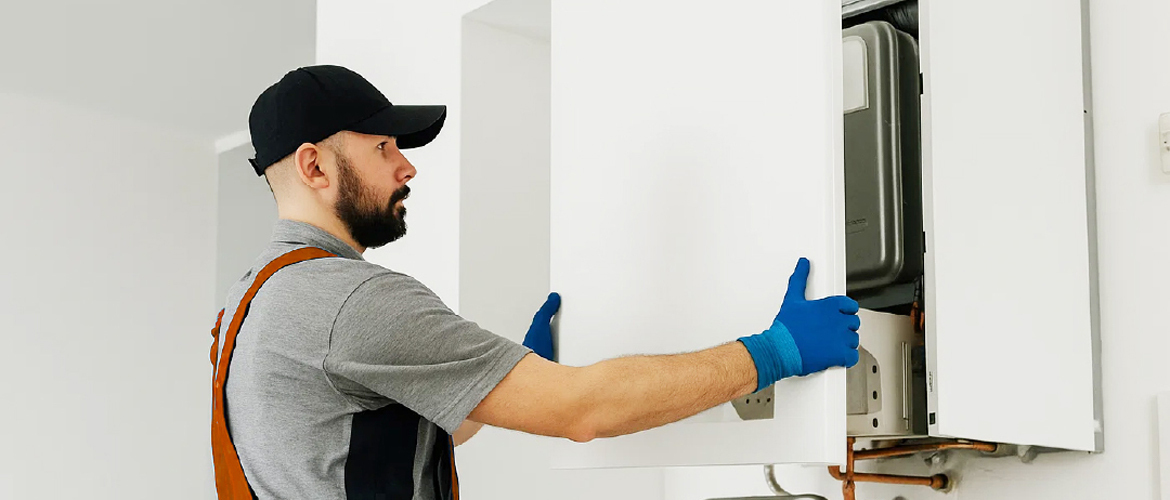What Does Boiler Installation Involve?
Boiler installation involves setting up a heating system that uses water to distribute warmth throughout your home. This process includes connecting the system to water and gas supplies, integrating it with existing heating components, and calibrating controls to ensure efficient performance. When handled by a professional, installation ensures that the system operates safely and reliably.
The importance of professional installation cannot be overstated. A properly installed boiler runs at peak efficiency, lowering energy use and reducing monthly bills. It also meets safety codes and minimizes hazards like gas leaks or carbon monoxide buildup. Finally, a professional installer will ensure your pipes and radiators are connected properly and in good working order to ensure heat is distributed evenly throughout your home, so you get the most from your new boiler.
Signs You May Need a New Boiler Installation
Knowing when to replace an outdated boiler can save you from unexpected breakdowns during the coldest days of the year. Common signs that point to the need for a new boiler include:
Age: Boilers over 15 years old often operate at lower efficiency and may be nearing the end of their service life.
Frequent Repairs: If you find yourself calling a technician several times a season, it may be more cost-effective to invest in a replacement.
Strange Noises or Leaks: Banging, gurgling, or visible water leaks signal deeper issues that could require replacement.
Factors to Consider When Installing a Boiler
Every home is unique, and choosing the right boiler depends on several important factors:

- Size and Capacity: A boiler should be properly matched to your home’s heating needs. Undersized units struggle to heat the house, while oversized systems waste energy. A professional will calculate requirements based on your square footage, insulation, and family’s hot water needs.
- Fuel Type: Options include natural gas, oil, and electricity. Gas is typically the most cost-effective and eco-friendly, but availability and cost of fuel in your area will influence the best choice.
- System Type: Boilers come in combi, system, and conventional models. A combi boiler is compact and great for smaller homes, while system and conventional boilers better serve larger households with higher hot water demands.
The Boiler Installation Process
Many homeowners wonder how long installation takes and what the process looks like. While each project varies, most installations can be completed within one to three days, depending on the complexity and whether an old unit must be removed.
Here’s what to expect:
- Assessment: A professional technician evaluates your home and recommends the right boiler type and size.
- Removal: The old unit is disconnected and safely removed.
- Installation: The new boiler is connected to gas and water lines, controls are set, and safety systems are checked.
- Testing and Guidance: The system is tested for performance, and the technician explains operation, maintenance schedules, and warranty details.
After installation, many companies offer ongoing maintenance plans to help maximize efficiency and lifespan.
Benefits of Professional Boiler Installation
Choosing professional installation provides long-lasting benefits, including:
- Energy Efficiency and Savings: A properly installed boiler runs at maximum efficiency, reducing energy consumption and lowering utility costs.
- Longer System Life: Correct installation and routine servicing extend the lifespan of the unit.
- Safety Compliance: Professionals follow local codes and ensure your home is protected from risks such as leaks in pressurized gas and water lines, or improper exhaust venting.
- Warranty Protection: Many manufacturers require professional installation for warranties to remain valid, protecting your investment.
Do You Need Permits for Boiler Installation?
In many areas, a boiler installation requires a permit to ensure the system meets building codes and safety standards. Your HVAC professional will typically handle the permitting process, saving you time and ensuring the installation is properly documented.
Why Choose Lennox?
Lennox has always prided itself on delivering high-quality heating solutions and industry standard service. That’s no different when it comes to boiler installation. Our technicians have the expertise and experience needed to ensure every boiler they install is correctly sized, safely installed, and optimized for long-term performance. Every certified Lennox pro understands that, along with exceptional equipment, delivering peace of mind is a priority.
A Warm, Smart Investment
When the need arises, investing in a new boiler is one of the smartest decisions a homeowner can make. It means lower energy costs, consistent comfort, and a safer home environment. Whether you are upgrading an older system or selecting a boiler for a newly built home, the right boiler installed by the right professional can help you get the most out of your heating system for years to come.

